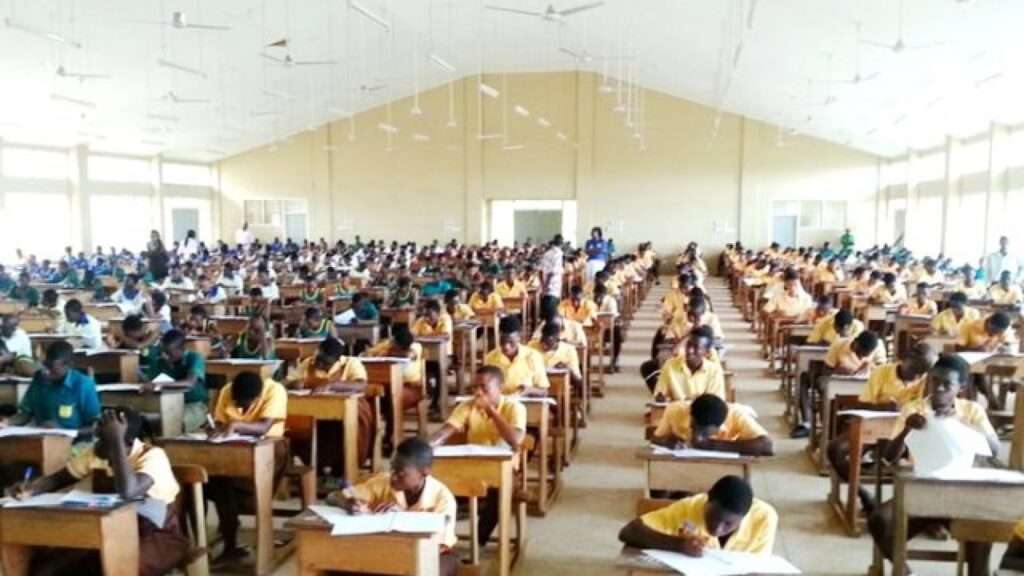Kofi Asare, Executive Director of Eduwatch Africa, has underscored the significance of the NDC’s plans to comprehensively review the Computerised School Selection and Placement System (CSSPS).
According to Asare, the review aims to eliminate corruption and ensure that the placement process is based solely on merit.
This move is expected to restore public trust and fairness in the system, which has faced criticism over allegations of favoritism, bribery, and manipulation of placements.
The proposed reforms prioritize transparency and accountability, providing equal opportunities for all students to access secondary education based on academic performance.
If successfully implemented, such changes could significantly enhance the credibility of the educational placement process and promote equity in access to quality education.
“The CSSPS currently allocates 30% admission protocol to public JHS graduates seeking admission into Category A schools.
“The assumption is that public JHS are patronized by the ‘poor’, most of whom learn under challenging situations in basic schools”.
Kofi Asare, Executive Director of Eduwatch Africa
Asare further proposed an innovative approach to reform the Category A protocol placements within the Computerised School Selection and Placement System (CSSPS).
He suggested allocating an additional 20% of Category A placements to fee-paying students.

Under this proposal, wealthier families would have the opportunity to secure placements for their children in top-tier schools, provided the students meet the same cut-off score as their counterparts from public Junior High Schools (JHS) under the protocol system.
He noted that parents would be required to pay approximately GHC 8,000 annually for their wards to access these placements.
According to Asare, this system could serve as a practical solution to reduce the financial burden on the government while maintaining fairness in the selection process. “After all, some parents are paying 15-30k to middlemen for the same slots”.
Proposed Fee-Paying Model to Support Needy Students, Ease Govt’s Burden
Furthermore, Kofi Asare emphasized that the proposed fee-paying system could have a broader social impact by promoting inclusivity and supporting students from underprivileged backgrounds.
He explained that under this arrangement, the GHC 8,000 paid annually by each fee-paying student would be sufficient to cover the full educational expenses of two additional “needy” students.
This model, Asare noted, would create a self-sustaining mechanism within the education sector, where the financial contributions of wealthier families directly support the education of disadvantaged students.

“For example, a Category A school that admits 1,000 students a year would reserve 200 slots for fee-paying students, which would generate GHC 1.6 million a year, enough to cover the entire cost of feeding those 1,000 students in that year. And would be advance cash. Note: Feeding accounts for about 70% of the free SHS budget”.
Kofi Asare, Executive Director of Eduwatch Africa
He highlighted that if the proposed fee-paying system is effectively implemented, it could significantly reduce the financial burden on the government, particularly concerning the cost of feeding students in high-demand Category A schools.
By allowing fee-paying students to cover their own expenses, the government would no longer be required to allocate funds for feeding in these schools, leading to substantial cost savings.
Additionally, Kofi Asare pointed out that this approach could address the persistent challenge of delayed disbursement of funds for school feeding.
Since fee-paying students would provide cash in advance to cover their fees and associated costs, schools would have immediate access to the necessary funds. “Taxing the rich to care for the needy, while still making the rich happy”.
Asare posed a thought-provoking question, wondering whether it is feasible to adopt this approach or if the status quo should remain, allowing intermediaries and middlemen to continue benefiting from the system.
He highlighted that this ongoing arrangement contributes to persistent cash flow challenges, raising concerns about the sustainability and fairness of the current model. “This proposal is just for Cat. A schools”.
READ ALSO: Israel To Close Embassy In Ireland



















